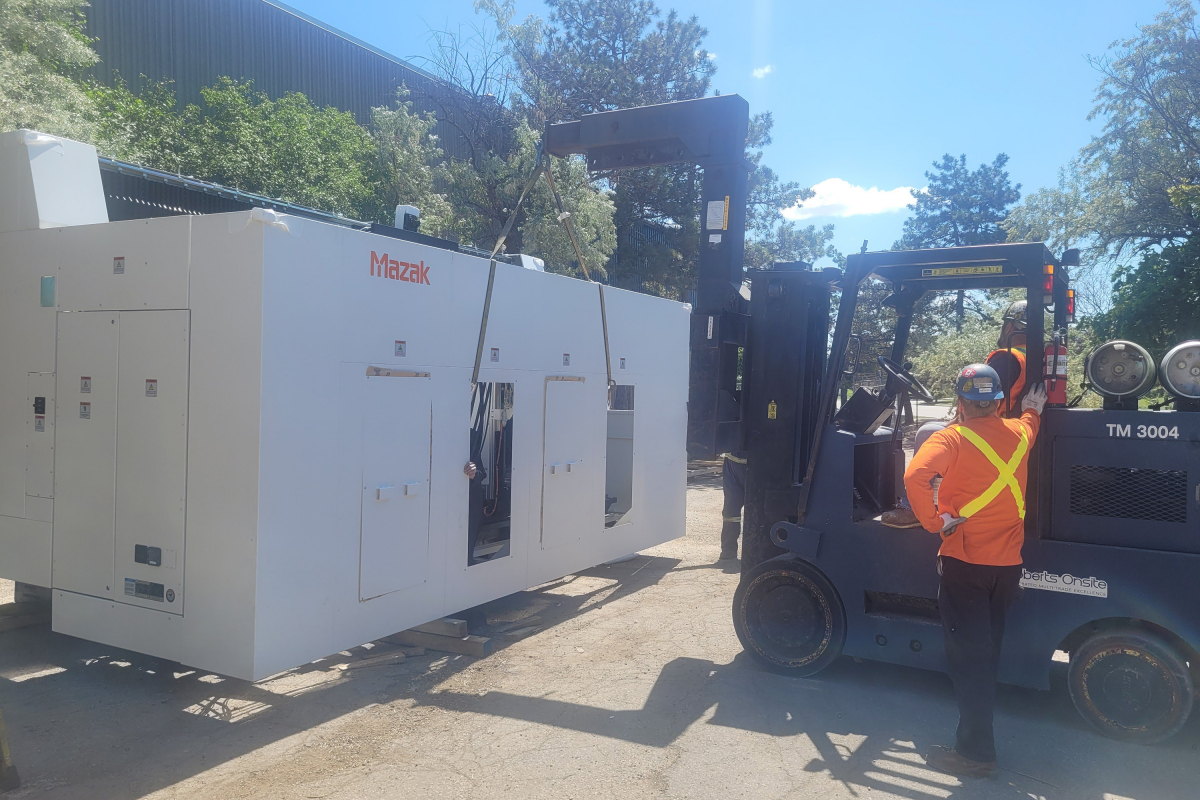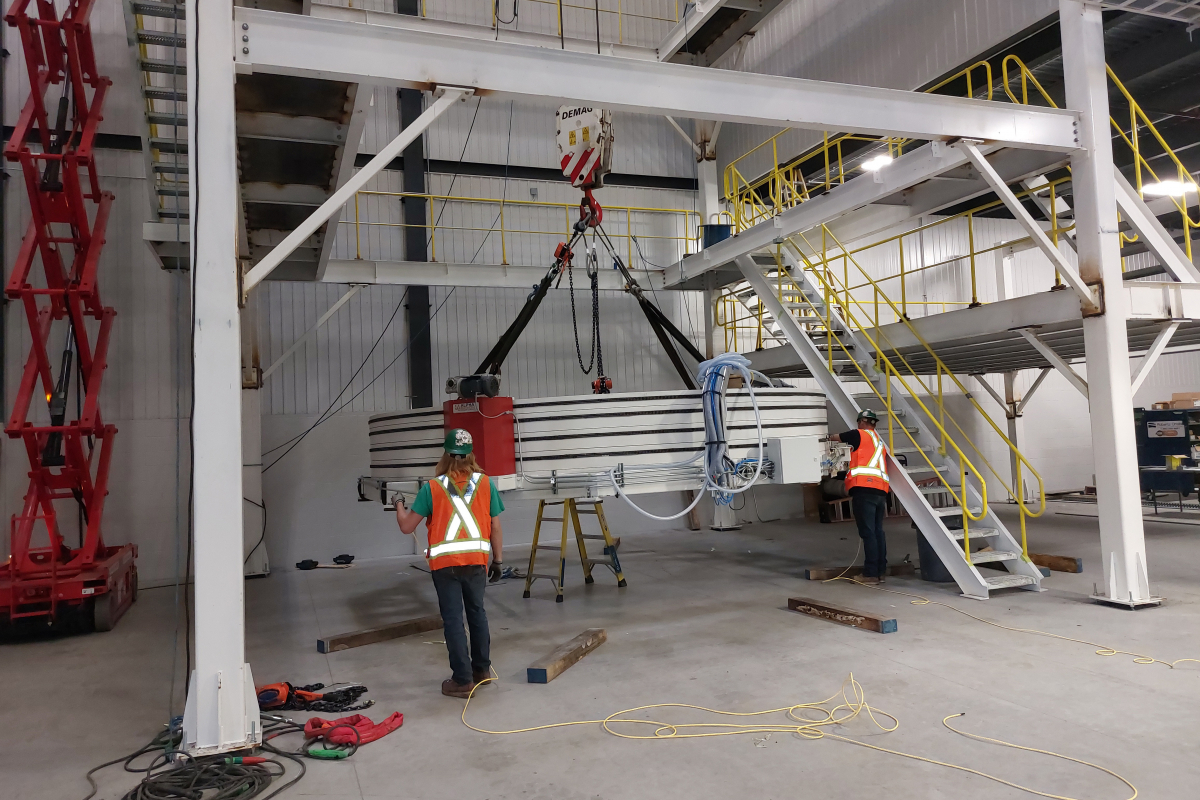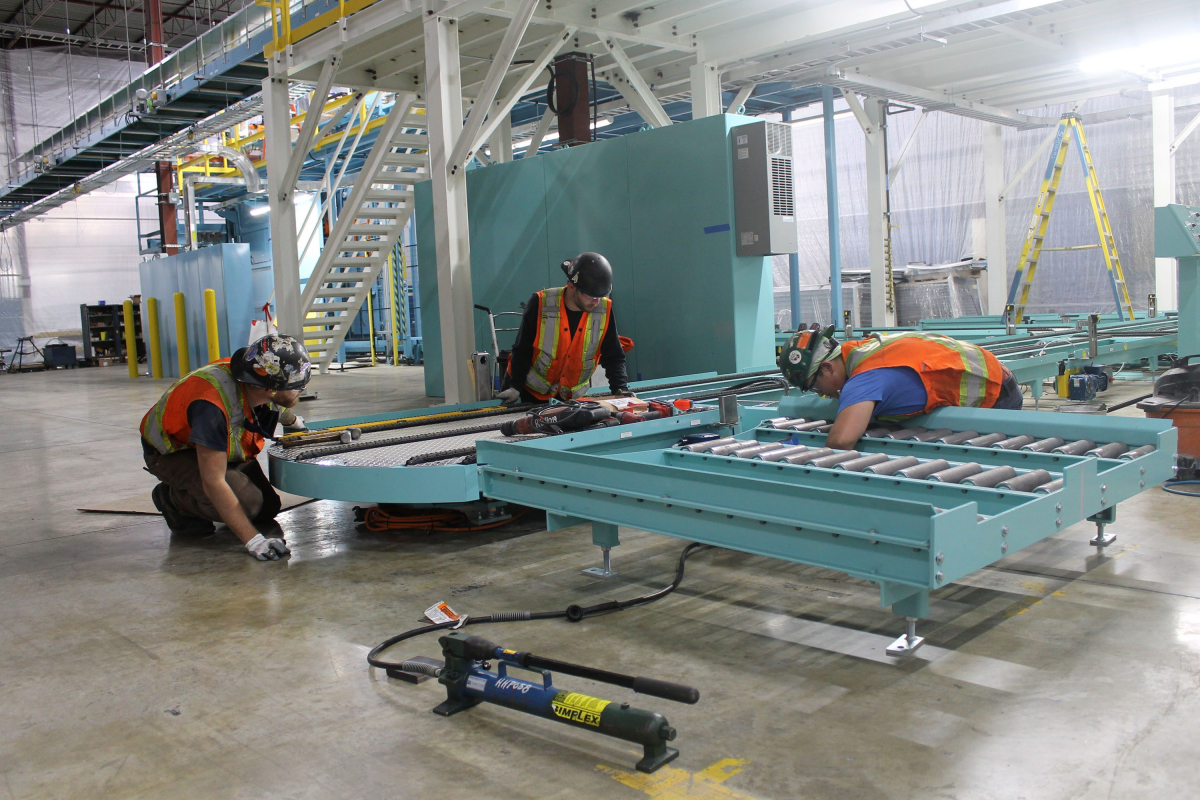After the assessment phase of your manufacturing process improvement project comes the next most crucial step, the planning phase of equipment relocation and installation. Once you’ve consulted Roberts Onsite and we’ve completed your initial assessment, it’s time to put the plan into action.
When the time comes to relocate the existing equipment and install new equipment, you require electrical installation service, or you need expertise in mechanical system proficiency, Roberts Onsite is by your side.
Develop a Project Plan
Here is where details are critical to implementing a successful transition. By developing a cohesive project plan, you can outline all the resources required for industrial machinery relocations and installations in your facility.
This project plan will include the scope, timeline and resources required to pull off this process improvement smoothly. The plan is different by types of equipment, for example: injection molding machine, hydraulic press, or mechanical stamping press. It’s important to set realistic timelines as unforeseen issues may arise and factor in potential risks associated with the project.
Also remember to identify critical path and dependencies inside this project plan.
Determine Equipment Requirements
This phase is where your production process assessment recommendations will come in handy, identifying the specific equipment needed for the improvement project. This is where you need to know if you have all the chess pieces on your board to get the project done.
Many factors should be considered, such as technology upgrades, capacity, compatibility with existing systems, energy efficiency and maintenance requirements.
Select Suppliers and Contractors
Once you’ve determined which equipment is needed, you can choose which suppliers and contractors you’d like to work with. It’s best to do your homework and research multiple suppliers or manufacturers to ensure the best results.
The final cost is a big consideration, but so too is the quality of the equipment, the warranty on the product, and the customer support when the time comes for service. Saving money up front may be a short-term win, but consider all aspects before making a final decision.
There are any number of contractors or installation teams you could trust, but it’s wise to deal with third parties who are experienced in equipment relocations and installations.
Coordinate Logistics
This is where the wheels of motion for the process improvement plan move forward. Coordinating logistics involves the detailed portion of moving existing equipment and installing new equipment in your plant.
Before moving forward, don’t forget to cross off any necessary permits or approvals for this project. Within the logistics, consider things like transportation, disassembly, packaging, storage and handling requirements.
Establish Installation Guidelines
After choosing the suppliers and contractors and then setting forth the improvement plan, it’s time to develop installation guides. Work hand-in-hand with your suppliers and contractors to ensure the process goes as smooth as possible.
To avoid any issues or surprises, work closely with your suppliers and contractors and communicate your expectations, safety procedures and any special requirements for the installation process.
Get Planning with Roberts Onsite
It takes an entire team to execute a successful production process improvement project. Roberts Onsite has 85 years of experience in millwrighting and rigging services, electrical installations, and mechanical system projects.
Depending on the scope of your project, Roberts Onsite’s trusted multi-trade services can help you replace, relocate and install key pieces of equipment for your facility.
Speak with Roberts Onsite today and let us help plan your next process improvement in Kitchener, Waterloo, Cambridge, Guelph, Hamilton, Brantford, Brampton and surrounding areas.



